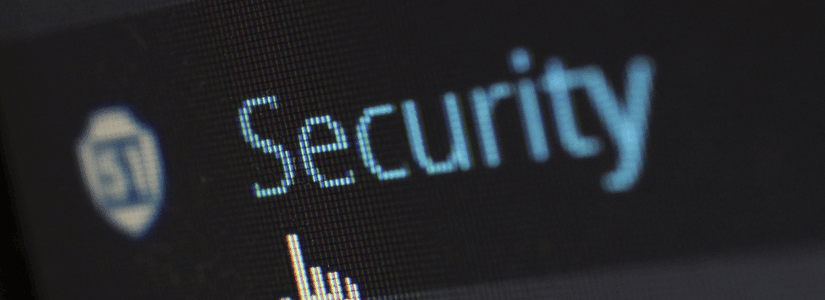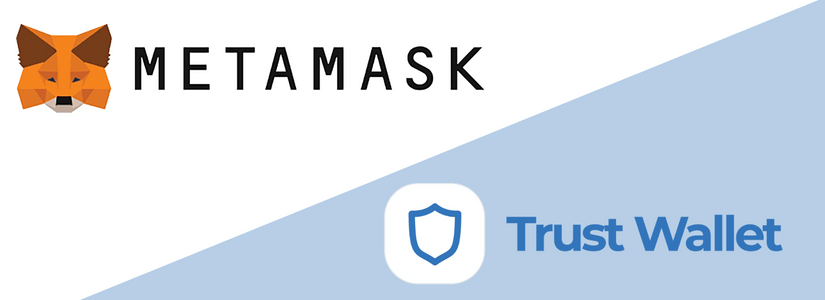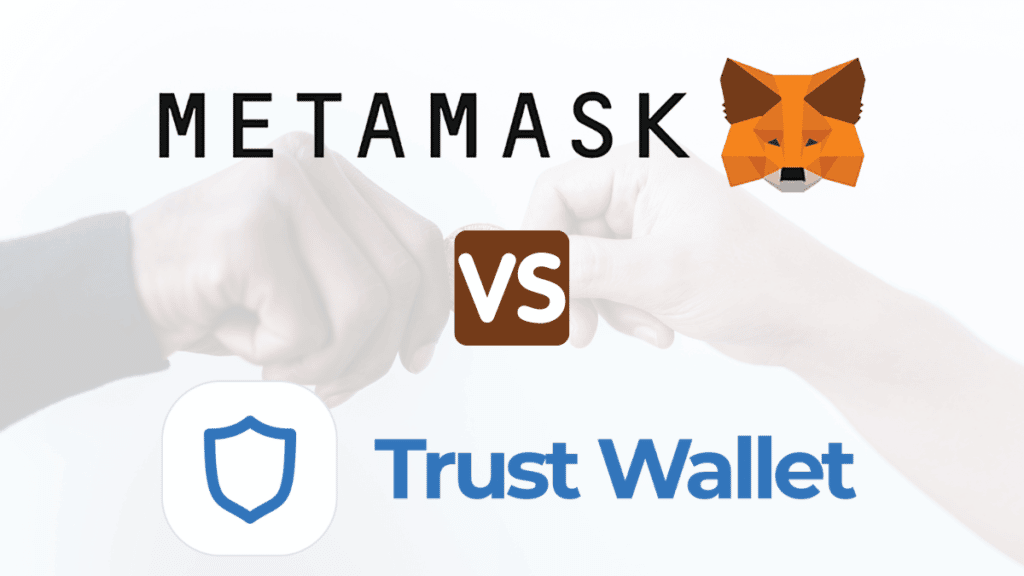Comparing Metamask vs Trust Wallet and choosing the most suitable one out of the two may be challenging, given the fact that they offer quite similar functions. They are the two most popular Web3 crypto wallets that allow users to store, send, receive, and manage their digital assets while also granting them seamless access to the decentralized web.
Metamask and Trust wallet both support a variety of digital assets and blockchain networks, but as will be shown in this article, they differ in some ways.
Main Features of Metamask
Founded in 2016 by ConsenSys, Metamask is the most popular Ethereum-based crypto wallet that offers easy-to-use custodial and management services for digital assets. The platform developed its mobile wallet version in 2019 in a bid to provide users with streamlined ways to manage their assets and interact with decentralized finance (DeFi) as easily as browsing the internet.
Supported Cryptocurrencies
The Metamask wallet supports a wide range of Ethereum-based or ERC-20-compatible tokens, such as Ether (ETH), USD Coin (USDC), Tether (USDT), Polygon (MATIC), Binance Coin (BNB), Immutable X (IMX), and so on. It also supports other crypto tokens built on the Ethereum layer-2 blockchain networks.
Supported Networks
It supports the Ethereum blockchain network and other networks that are compatible with the Ethereum Virtual Machine (EVM) like the Binance Smart Chain, Polygon, Optimism and Avalanche, among others.
Security

Metamask adds additional layers of protection, such as touch ID, face ID, and a password, to allow users to ensure more security over their assets when withdrawing funds from the wallet. These means of identification will be required whenever an outgoing transaction is to occur. This is in addition to the private keys that users are required to keep secure.
Supported Platforms
This wallet is usable as an in-browser app for desktop or laptop computers, as well as a mobile application on the Google Play and Apple App Stores. Metamask supports numerous Ethereum-compatible platforms like OpenSea, Uniswap, QuickSwap, and PancakeSwap.
Services Offered
The Ethereum wallet offers multiple services like buying, selling, and swapping cryptocurrency tokens. In addition, it enables users to lock up (stake) their tokens in certain pools to earn dividends. Metamask also provides easy access to the DeFi world through its in-built browser.
Anonymity
MetaMask treats users’ anonymity as a priority. It doesn’t require information like the “Know Your Customer” (KYC) procedures required by crypto exchanges. This means that you only need a passphrase to access all of Metamask’s services.
Main Features of Trust Wallet
Trust Wallet is a non-custodial crypto wallet that allows users to send, receive, exchange, and hold cryptocurrencies and non-fungible tokens (NFTs). It is available on Android, iOS, and browser extensions, supporting multiple blockchain networks.
Viktor Radchenko founded Trust Wallet in November 2017. However, eight months later, in July 2018, Binance acquired the wallet to provide better service and crypto security to its users.
Supported Cryptocurrencies
Trust Wallet supports Bitcoin (BTC) and over 4.5 million coins and tokens across over 64 blockchain networks. Some examples are: Ethereum (ETH), Solana (SOL), BNB Chain (BNB), Polygon (MATIC), Aptos (APT), Avalanche (AVAX), and its own token, Trust Wallet Token (TWT).
Supported Networks
The wallet supports a variety of networks, including Solana, Cardano, Tron, and over 60 other blockchains—in contrast to the Metamask wallet, which only supports cryptocurrencies that are compatible with the EVM.
Security
Trust Wallet is secure as long as users remember to keep their private keys, also known as recovery phrases, in a safe and orderly manner. So far, no reports of vulnerabilities have been proven. The wallet is further secure with Touch ID, passwords, Face ID, and two-factor authentication to enhance the safety of the user’s crypto assets.
Supported Platforms
It supports several decentralized applications (DApp) and platforms built on the various blockchains it provides access. These include but are not limited to decentralized exchanges, NFT marketplaces, and decentralized apps.
Services Offered
Trust Wallet is much more than just a place to store your virtual currencies. You can use well-known decentralized applications (DApps) like PancakeSwap, UniSwap, 1inch, Aave, etc. on over 60 blockchains, including Ethereum, Solana, Binance Smart Chain, and Polygon, with ease. It also allows users to swap directly from their wallets and withdraw directly from the Binance exchange.
Anonymity
As a non-custodial wallet, the Trust wallet enables users to own their private keys. However, it does not require any personal information, like selfies or identification documents. It works similarly to Metamask by securing users’ assets with a secret phrase and password without KYC.
Metamask vs Trust Wallet
| Metamask | Trust Wallet | |
| Easy to use | Medium | High |
| Security | High | High |
| Supported Crypto | 500,000+ | 4.5 million+ |
| NFT Support | Yes | Yes |
| Staking Support | Yes | Yes |
| Swap Support | Yes | Yes |
| Desktop Version | Yes | Yes |
| Mobile Version | Yes | Yes |
| Hard Wallet Compatibility | Yes | Yes |
| Crypto Economy Valuation | 85/100 | 90/100 |
Which is the Safest Wallet, Metamask, or Trust Wallet?

We can’t definitely declare one as “the safest” while discussing Metamask vs Trust Wallet, as they are both popular and well respected.
Determining the level of security of a crypto wallet depends on factors like the security measures used to safeguard private keys, the kinds of encryption methods used, and the reputation and track record of the particular wallet provider over time.
Both Metamask and Trust Wallet take security seriously and provide robust safeguards to protect users’ assets, such as strong encryption and using 2-factor authentication methods such as touch or face ID.
Metamask, for instance, encrypts and stores private keys on the user’s device, and users can also use a hardware wallet with Metamask for added security.
Trust Wallet, on the other hand, supports a wide range of cryptocurrencies. It uses strong encryption and offers support for hardware wallets and biometric authentication options like fingerprint and facial recognition.
Consequently, you are also responsible for maintaining the security of your cryptocurrency wallet by protecting your private keys and avoiding phishing scams. Meanwhile, you can select a cryptocurrency wallet based on the fees and other features that are beneficial to you.
Conclusion
Before deciding between Metamask vs Trust wallet, you should, first of all, consider your overall needs for a crypto wallet. The benefits, features, and usability of Trust Wallet and MetaMask differ. You will need to compare and contrast the two wallets based on the services they offer, the security measures they adhere to, and the kinds of digital assets you might find there.










